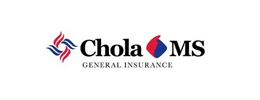Last updated on: September 19, 2025
Mediclaim and health insurance are terms often used interchangeably, but they have distinct differences. Mediclaim is a type of health insurance policy that specifically covers hospitalization expenses and may include pre- and post-hospitalization costs, but it generally requires hospitalization to claim benefits. It usually has a predefined limit and is reimbursement-based. On the other hand, health insurance is broader, covering a range of medical expenses including hospitalization, doctor consultations, and sometimes even preventive care. Health insurance policies often offer cashless treatment facilities and can include critical illness cover, which provides a lump sum payment upon diagnosis of specific serious conditions. While mediclaim offers basic financial protection against hospital bills, health insurance provides comprehensive coverage, catering to various healthcare needs beyond just hospitalization.
Knowing how mediclaim differs from health insurance is vital when shielding both your health and your finances. Although each furnishes critical help in covering medical emergencies, they are structured to meet distinct needs. With healthcare expenses rising across India, surveying the differences can furnish you with the knowledge needed to read online reviews and choose the plans that meet your specific requirements.
Mediclaim works as a health coverage that compensates the policyholder for medical expenses accrued during hospitalization. It is a kind of health insurance scheme that provides coverage for hospitalization and associated costs only up to a specified limit.
Health insurance functions as a comprehensive scheme that extends coverage to a wider spectrum of medical costs besides hospitalization. It typically covers outpatient care, along with pre and post-hospitalization costs, and at times wellness and preventive services as well.
Experts Advise: Wise industry analysts recommend opting for a health insurance policy with a higher sum insured so that you can provide long-term financial protection against unforeseen illnesses.
Deciding whether to take a mediclaim policy or health insurance is contingent on several elements, including your health requirements, financial standing, and anticipated medical needs in the future.
| Feature | Mediclaim | Health Insurance |
|---|---|---|
| Coverage Type | Only hospitalization costs | All-round medical coverage |
| Flexibility | Limited | High |
| Sum Insured | Generally lower | Typically higher |
| Tax Benefits | Yes (under Section 80D) | Yes (under Section 80D) |
Pro Tip: Before finalizing any plan, thoroughly scrutinize the policy documents to become acquainted with the list of exclusions and inclusions.
Mediclaim mainly focuses on hospitalization costs, whereas health insurance offers all-round coverage that encompasses outpatient treatment and preventive care.
When it comes to meeting basic hospitalization requirements, mediclaim may suffice, yet for comprehensive protection, a family floater health insurance plan is advisable.
Being aware of the distinctions between mediclaim and health insurance guarantees that you are sufficiently protected during medical emergencies. Selecting the appropriate option shields you from financial strain and bestows a sense of peace of mind.
While managing healthcare costs effectively, it is crucial to recognize and differentiate them, so that your finances can be planned accordingly.
Did you know? Approximately three-quarters of India’s healthcare spending is carried out out-of-pocket, stressing the importance of comprehensive health insurance.
Mediclaim may act as an add-on to existing health insurance, covering extra hospitalization expenses, but it is vital to grasp how the benefits coordinate.
Yes, numerous insurers provide portability solutions that enable individuals to move from mediclaim coverage to health insurance and boost their overall cover.
It is essential to comprehend the expenses tied to mediclaim and health insurance before making a well-informed choice.
Expert Insight: Although the premium is a factor, the plan’s benefits and scope of coverage ought to serve as the principal determinant of your choice.
Although mediclaim is generally lower priced because of its restricted coverage, its more extensive benefits justify the higher premiums of health insurance.
Among them are the insured’s age, health condition, lifestyle, the chosen sum insured, and the particular characteristics of the chosen plan.
Comprehending the policy clauses of mediclaim and health insurance is key to realizing the full range of benefits.
Weekly Pro Tip: Ensure you understand the exclusions and waiting periods in your policy so that no surprises arise when the time for filing a claim arises.
Generally, pre-existing illnesses undergo waiting periods, and claims for them may only be reimbursed after a specified period.
The waiting period can stretch from as little as 30 days to as long as four years, contingent on the policy and the specific condition included.
Did You Know? When selecting which insurer to go with, the claim settlement ratio assumes paramount significance, as it signals the probability that your claims will be approved.
In most cases, you can obtain cashless treatment only at network hospitals contracted with your insurer.
If a claim is denied, you can contest the determination by furnishing the insurer with supplementary documentation or any other clarification it requests.
Within India’s ever-changing healthcare milieu, it is more crucial than ever to grasp the difference between mediclaim and health insurance. Although mediclaim delivers only rudimentary hospitalization coverage, health insurance affords broad-ranging protection for a broad spectrum of medical bills. Selecting the best option ought to be guided by your health requirements, financial resources, and long-term plans.
Expert Tip: Make a habit of periodically revisiting your policy to keep it consistent with evolving health requirements and escalating medical expenditures.
Indeed, investing in both policies can grant extra safeguards, protecting you against routine hospitalization expenses and a wider range of medical treatments.
Weight elements such as your age, family’s medical history, lifestyle, and projected future medical expenses.
Indeed, the premiums paid for both can be deducted from income under Section 80D of the Income Tax Act.
Conduct periodic reviews of your policy and make updates when necessary to make certain it accommodates your ever-changing health needs.
Portability often enables you to carry your policy benefits and waiting period requirements to a different insurer.












How could we improve this article?
Written by Prem Anand, a content writer with over 10+ years of experience in the Banking, Financial Services, and Insurance sectors.
Prem Anand is a seasoned content writer with over 10+ years of experience in the Banking, Financial Services, and Insurance sectors. He has a strong command of industry-specific language and compliance regulations. He specializes in writing insightful blog posts, detailed articles, and content that educates and engages the Indian audience.
The content is prepared by thoroughly researching multiple trustworthy sources such as official websites, financial portals, customer reviews, policy documents and IRDAI guidelines. The goal is to bring accurate and reader-friendly insights.
This content is created to help readers make informed decisions. It aims to simplify complex insurance and finance topics so that you can understand your options clearly and take the right steps with confidence. Every article is written keeping transparency, clarity, and trust in mind.
Based on Google's Helpful Content System, this article emphasizes user value, transparency, and accuracy. It incorporates principles of E-E-A-T (Experience, Expertise, Authoritativeness, Trustworthiness).